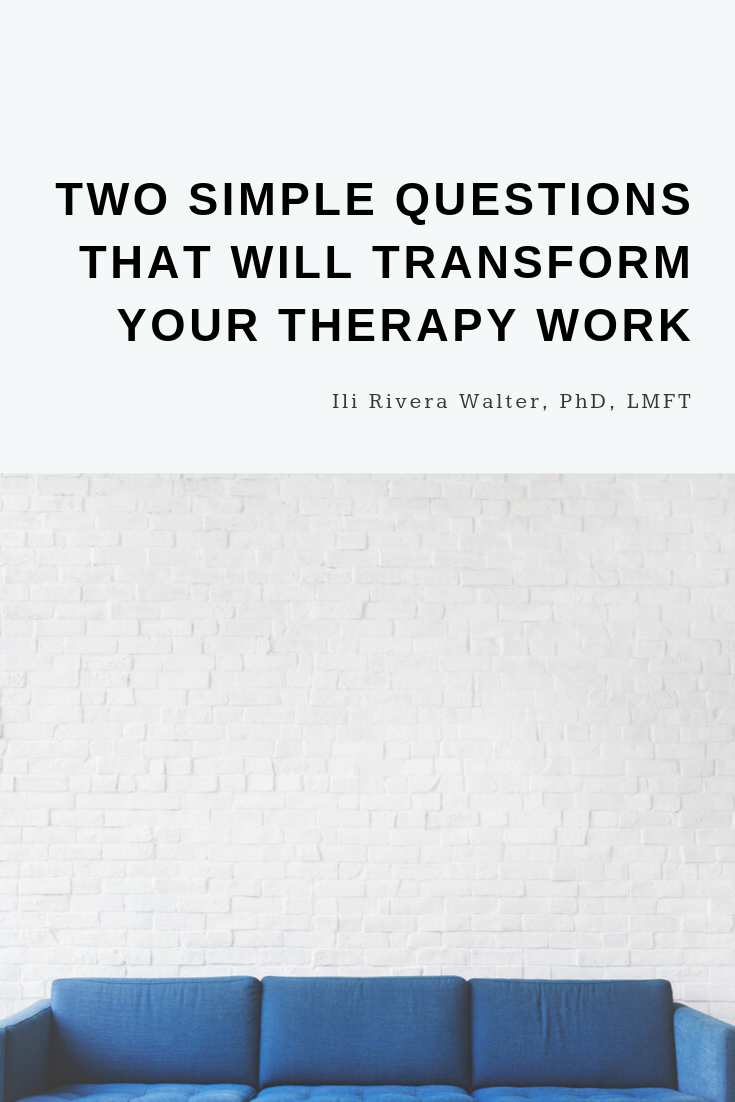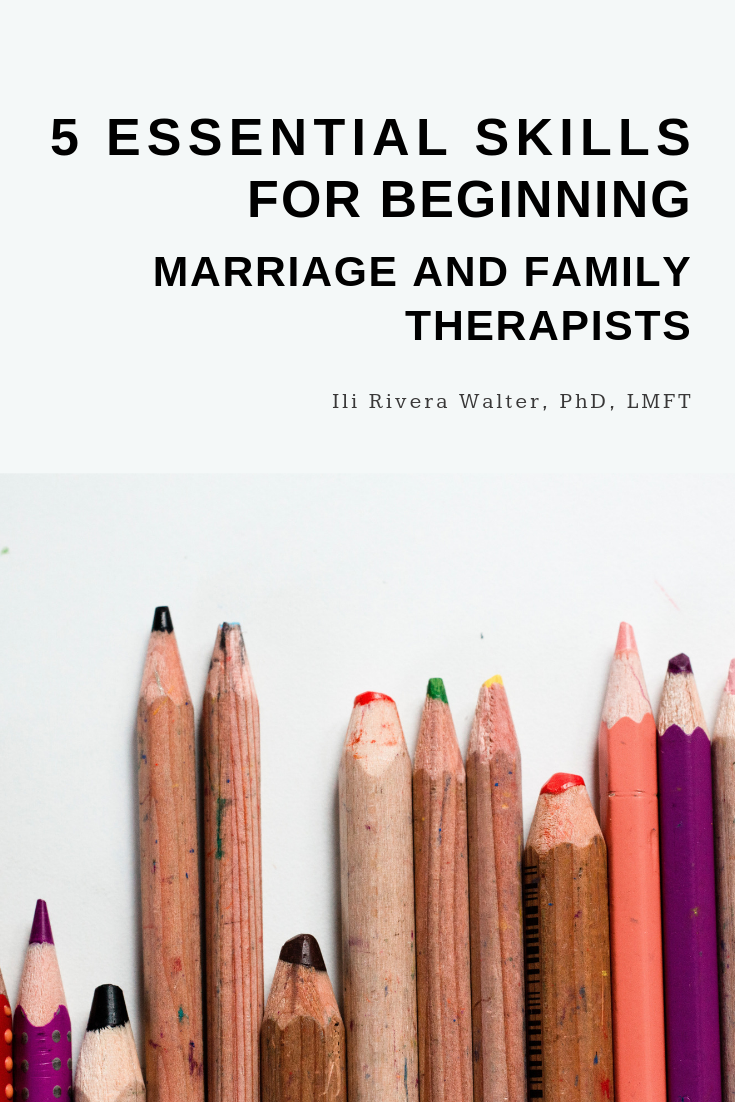This post was originally published on October 25, 2016, and was updated on February 24, 2019.
We all have them--sessions that are a struggle all the way through and that leave us feeling defeated. Even as a seasoned therapist, I’ve been caught off-guard by the unexpected failed session. The truth is, no matter our level of experience, we will have these sessions here and there, and I suppose my point in writing this post is to remind you (and myself) that we shouldn’t be surprised by them. After all, we are fallible.
That's the reason the word failed is in quotation marks throughout this post. There are no failed sessions, if we learn from them.
When we take lessons from these sessions, they point to ways in which we can continue to grow as therapists. That is my purpose today--to help us make sense of and put in perspective our “failed” sessions. I am defining a failed session as a session in which we feel out of control, we’ve lost structure, or we can’t maintain a therapeutic purpose for our interaction.
In this post, I cover how to process and learn from a failed session, so that you can get closer to the goal: Being able to respond therapeutically in the moment, and hopefully redirect a session moving toward “failure.”
Common Reasons for a Failed Session
1| A Client with A Visitor Relationship to Therapy
The visitor, according to Solution Focused Brief Therapy, is a client that has no personal motivation for coming to therapy, but rather, is in therapy to satisfy another. Visitors, at times, can have a less than enthusiastic approach to therapy, and as a result, affect the therapist’s sense of confidence.
In order to prevent a failed session with a visitor, meet their reality with acceptance (Cozolino, 2004). Welcome their perspectives on therapy and change. Work with their motivation, not against it. Do not take their relationship to therapy personally, and make sure to not minimize their experience by using blaming language, such as calling them “resistant,” “not ready,” or “unmotivated” (to others, or yourself).
2| In-session Conflict
The conflict of two or more clients in a therapy session can de-rail even the most experienced therapist’s intentions and distract both client and therapist from the therapeutic goal.
In order to prevent a failed session in this situation, make sure to process the conflict, and the experience of the conflict, with clients, and reiterate ongoing goals before the end of the session. This will give you, and clients, a sense of continued collaboration.
3| Burnout and Other Therapist Factors
Being overworked, or going through personal hardships can lead therapists to be less present and emotionally available to clients due to pre-occupation, boredom, or fatigue. The truth is, our personal lives do affect our work.
In order to prevent a failed session, see a supervisor or therapist regularly during times of personal difficulty. In addition, make sure to pay attention to your needs, and set your schedule accordingly. It may be a good time to decrease hours, until you feel able to return to your regular schedule. The important thing is to be proactive and have a plan in place before a problem occurs, so that you prevent any consequences to your work (and clients).
4| Triggers (a.k.a, counter-transference)
Patients can “push our buttons,” by reminding us of past or present trying people and experiences. Once these buttons are pushed, we can move into ineffectual interactions, such as self-disclosure, advice-giving, or arguing, and a session can quickly lose its therapeutic focus.
The best way to prevent a failed session from counter-transference is to practice noticing our emotions and reactions in the moment. Reviewing our sessions via audio or video tape and transcribing, or processing these moments with a supervisor, will help us build “in the moment” skills, so that we can use our triggers therapeutically.
Processing a Failed Session
If you don’t catch the problem in the moment, then take some time to evaluate the session after the fact. Consider the following questions for processing and making meaning from the session:
How do I feel about the session now?
What emotions did I experience during the session?
What are my thoughts about the clients’ contribution to the difficult session?
What do I think about these clients now?
How did I try to intervene?
What was my therapeutic intent?
How and when did I lose therapeutic focus? (i.e., What went wrong?)
What did I learn?
What do I wish I had done differently?
Accept and Forgive
“It is critical not only to acknowledge and own our failures but also to be forgiving of these lapses.” (Cozolino, 2004, p. 133).” The best prevention for future failures is to accept that we will fail, and learn from our mistakes. This comes from understanding our role in the failed session, considering what we can take away from the experience, forgiving ourselves, and moving on with our work.
Back to Basics
The more prepared and structured we are in sessions, the better. Failed sessions often happen when we get pulled along a client’s agenda, emotions, crisis, request, etc., and we abandon our typical session structure, or our goal for the session. Sticking to our assessment and treatment goals helps us honor the client’s current motivation and focus, while sticking to a larger plan. This doesn’t mean there isn’t room to “flow” in a session, but rather, that we must maintain some sense of overarching purpose for our sessions.
Summary
"Failed" sessions are part of our work; although, they can be unexpected and disheartening. We can minimize their impact to our confidence and our clients by staying away from blame, accepting responsibility, and learning from the specific interactions in the session that led to the "failure." With proper processing, these sessions can become our best teachers.
Let's Chat
Let me know in the comments below:
What is one thing you learned from your most recent “failed” session?
What is one thing you implemented from this learning?
References
Cozolino, L. J. (2004). The making of a therapist: A practical guide for the inner journey. New York, NY: W. W. Norton & Company.
Free Cheat Sheet
I've put together a cheat sheet to help you quickly process a disappointing session. To access it, along with many more resources, sign up for the free resource library below:












